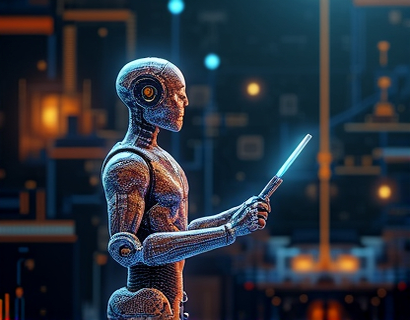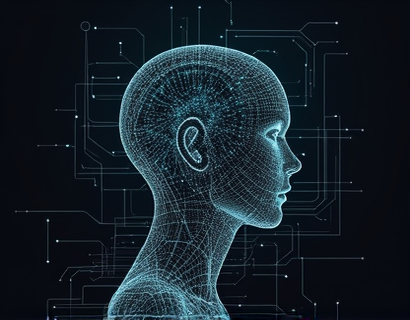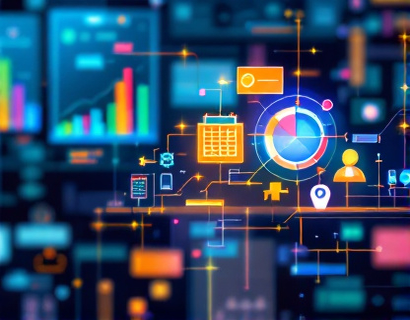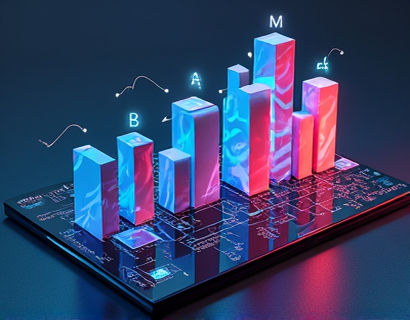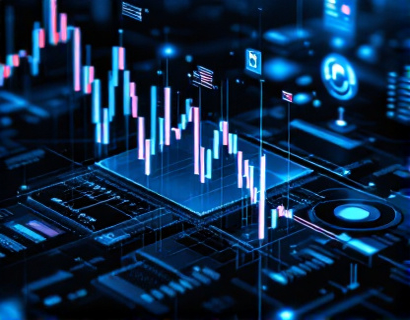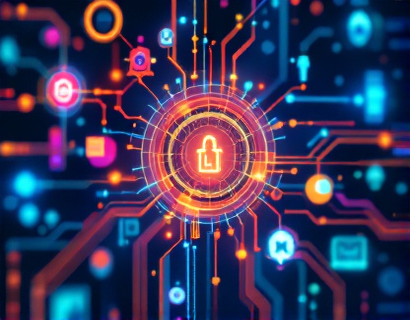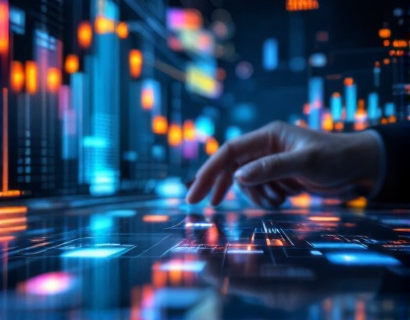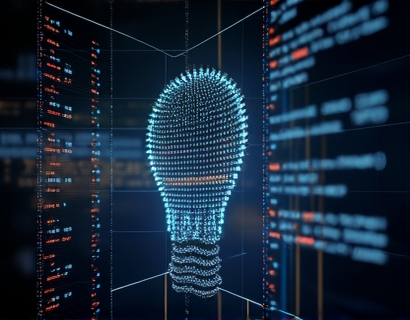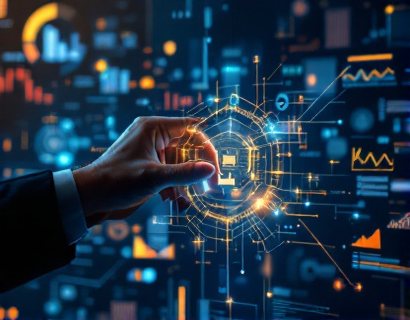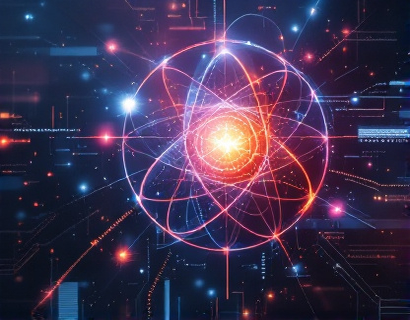Maximizing Digital Transformation: Leveraging AI and Crypto for Advanced Solutions
The digital landscape is undergoing a profound transformation, driven by the convergence of artificial intelligence (AI) and cryptocurrency technologies. This fusion represents a new frontier in business operations, offering unprecedented opportunities for efficiency, security, and innovation. As organizations seek to stay competitive in the rapidly evolving digital era, understanding how to harness the power of AI and blockchain can be pivotal. This article explores the synergy between these cutting-edge technologies and provides insights into how they can be leveraged to enhance business operations and drive growth.
The integration of AI and blockchain is not just a technological trend but a necessity for businesses aiming to remain relevant. AI brings intelligence and automation to complex tasks, while blockchain offers a secure and transparent framework for transactions and data management. Together, they create a powerful ecosystem that can revolutionize various industries, from finance and healthcare to supply chain and beyond.
Enhancing Efficiency with AI and Blockchain
One of the most significant benefits of combining AI and blockchain is the enhancement of operational efficiency. AI algorithms can automate routine tasks, reducing the need for manual intervention and minimizing errors. For instance, in supply chain management, AI can predict demand patterns and optimize inventory levels, while blockchain ensures that each step of the process is recorded transparently and immutably. This dual approach not only speeds up operations but also reduces costs and improves accuracy.
Consider a manufacturing company that uses AI to monitor production lines in real-time, identifying potential bottlenecks and scheduling maintenance proactively. Blockchain can be employed to create a tamper-proof record of all production data, from raw materials to finished products. This ensures that every component's origin and quality are verifiable, enhancing trust and efficiency throughout the supply chain.
Boosting Security through AI and Cryptography
Security is a paramount concern in the digital age, and the combination of AI and blockchain offers robust solutions. AI can detect and respond to security threats in real-time, analyzing vast amounts of data to identify anomalies and potential vulnerabilities. Blockchain, with its cryptographic algorithms and decentralized nature, provides a secure environment for storing and transmitting sensitive information.
For example, in the financial sector, AI-powered systems can monitor transactions for fraudulent activities, while blockchain ensures that all financial records are secure and immutable. This synergy significantly reduces the risk of cyberattacks and data breaches, providing a higher level of security for both businesses and their customers.
Innovating with Smart Contracts and Decentralized Applications
Smart contracts, self-executing contracts with the terms directly written into code, are a game-changer in the realm of blockchain. When combined with AI, smart contracts can become even more intelligent and adaptive. AI can analyze conditions and execute smart contracts based on real-time data, ensuring that agreements are fulfilled accurately and efficiently.
Decentralized applications (dApps) built on blockchain platforms can leverage AI to offer advanced functionalities. For instance, a decentralized finance (DeFi) platform can use AI to provide personalized financial advice and automate trading strategies. This not only enhances user experience but also opens up new possibilities for financial innovation.
Fostering Trust and Transparency
Trust and transparency are critical components of any successful business model, especially in the digital realm. Blockchain's inherent transparency ensures that all transactions are visible and verifiable, reducing the potential for fraud and increasing trust among stakeholders. AI can further enhance this by providing auditable and traceable data, ensuring that every action is accounted for and can be reviewed.
A prime example is in the realm of digital identity management. A blockchain-based system can store user identities securely, while AI can manage and verify access permissions in real-time. This ensures that only authorized individuals can access sensitive information, fostering a higher level of trust and security.
Driving Innovation through Data Analytics
AI excels in data analytics, capable of processing and interpreting vast datasets to uncover insights that would be impossible for humans to discern. When combined with blockchain, the quality and integrity of data are significantly improved. Blockchain ensures that data is tamper-proof and traceable, making it highly reliable for analytics purposes.
Businesses can leverage this synergy to drive innovation by making data-driven decisions. For instance, a retail company can use AI to analyze customer behavior and preferences, while blockchain ensures that the data used for analysis is accurate and unaltered. This leads to more effective marketing strategies and personalized customer experiences, ultimately driving sales and customer loyalty.
Challenges and Considerations
While the potential benefits of integrating AI and blockchain are substantial, there are also challenges to consider. One of the primary concerns is the complexity of implementing these technologies. Both AI and blockchain require specialized knowledge and resources, which can be a barrier for smaller organizations. Additionally, the regulatory landscape for blockchain and AI is still evolving, and compliance can be a significant hurdle.
Another consideration is the scalability of these technologies. While blockchain is known for its security, it can face performance issues as the network grows. AI systems, particularly those requiring extensive data processing, can also be resource-intensive. Addressing these challenges through innovative solutions and best practices is essential for successful implementation.
Case Studies and Real-World Applications
Several industries have already begun to harness the power of AI and blockchain, achieving remarkable results. In the logistics sector, companies like Maersk and IBM have collaborated on a blockchain-based platform to streamline shipping processes. AI is used to optimize routes and predict delays, while blockchain ensures that all transactions are recorded securely and transparently. This has led to significant reductions in costs and improved efficiency.
In the healthcare industry, a hospital in the United States implemented a blockchain-based system to manage patient records, integrated with AI for data analysis. This not only enhanced data security but also improved the accuracy of medical records, leading to better patient care and outcomes.
Future Prospects and Conclusion
The future of digital transformation is bright, with AI and blockchain continuing to evolve and integrate in new and exciting ways. As more organizations recognize the value of these technologies, we can expect to see widespread adoption across various sectors. The key to maximizing the benefits of AI and blockchain lies in strategic planning, continuous innovation, and a willingness to embrace change.
In conclusion, the fusion of AI and blockchain represents a transformative force in the digital world. By leveraging these technologies, businesses can achieve unprecedented levels of efficiency, security, and innovation. As the landscape continues to evolve, staying informed and adaptable will be crucial for success in the blockchain era.








